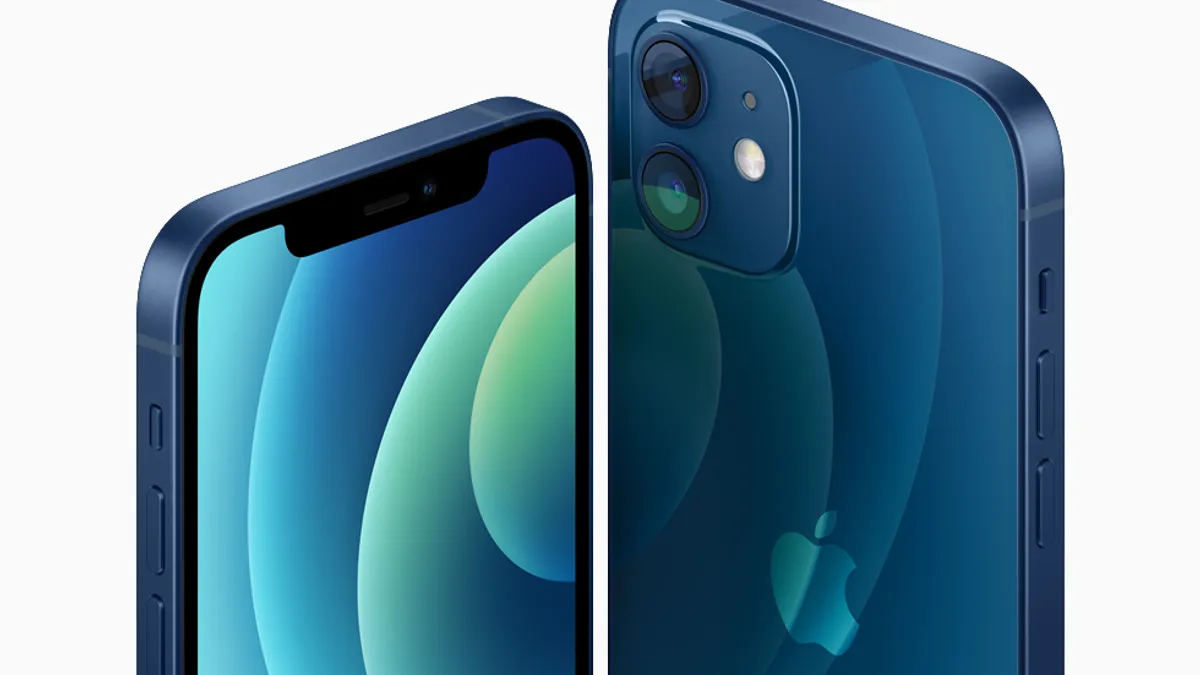UPDATE: April 27, 2021: Apple released its iOS 14.5 software update on Monday, April 26, alerting users to learn more about how the new App Tracking Transparency feature works.
Apple's plan to change the privacy settings on devices including the iPhone will challenge app publishers to develop fresh ways to reach the right consumers. But because many consumers are either unaware of Apple's plans or are confused by them, app marketers must also help them understand potential benefits from sharing personal data, new research suggests.
Almost half (47%) of respondents said they're unlikely to consent to sharing an Apple device identifier with apps that request it, AppsFlyer and the mobile marketing trade group MMA Global found in a recent survey. The finding suggests that app marketers will have greater difficulty in monetizing their wares once the privacy changes take effect.
"As marketers, we need to do a better job of communicating, and yes, even negotiating with consumers about the value of their data," Brian Quinn, AppsFlyer's president and general manager for North America, said in a statement. "Consumers find too much of what we do to be scary, which it shouldn't be. If indeed there is a fair and clear value exchange taking place, we are able to build better relationships with consumers while at the same time enabling a thriving free app ecosystem."
The stakes for the app industry are significant, with mobile ad spending in the U.S. forecast to grow 22% this year to $117.35 billion, researcher eMarketer predicts. Despite lingering effects of the pandemic-related recession, mobile ad spending continued to climb last year and is set to reach $174.16 billion by 2024 as marketers ramp up efforts to reach consumers on their smartphones.
IDFA not widely understood
Amid bubbling concerns about privacy in recent years, Apple last year announced at a developer conference that it would change the software powering devices including the iPhone, iPad and Apple TV to make customers more aware of the data they share with third-party apps. The technology giant said it would notify customers when apps ask for access to the Identifier for Advertisers (IDFA), a unique code that comes preinstalled on every Apple device. Similar to a browser cookie, Apple's IDFA helps marketers track people's online activities and serve them targeted ads.
"If indeed there is a fair and clear value exchange taking place, we are able to build better relationships with consumers while at the same time enabling a thriving free app ecosystem."

Brian Quinn
President and general manager, AppsFlyer North America
The advertising industry and social media behemoths like Facebook quickly complained about the move, pushing Apple to delay its plans from last fall to sometime in spring 2021 in order to give marketers and app publishers more time to adjust. Despite press coverage of Apple's plans and protests against it by industry stakeholders, less than a third of smartphone owners said they're aware of the change.
"Apple's planned updates are not widely understood, and if consumers act as they say they will, marketers are going to be severely challenged in how they monetize their apps," Quinn said. "This is a wakeup call to the entire industry about the coming privacy changes that will ultimately force them to turn to more privacy-compliant modes of tracking and better respecting the rights of consumers."
Education about ad perks
The ad-tech industry is developing workarounds to the inability to track consumers who decline to share their device identifiers. Probabilistic methods of estimating audience characteristics are one possibility, even if they're not considered as accurate as deterministic targeting, per AppsFlyer's report.
Marketers of mobile apps also can educate users about potential benefits of sharing their device identifiers, though it's not guaranteed that those efforts would sway opinions. Most consumers understand the consequences of preventing apps from accessing identifiers, including potentially seeing repetitive ads or promotions that are less relevant to them. However, 45% of smartphone owners said they still prefer to disallow tracking, and one-third said they won't allow tracking under any circumstances, the study found. AppsFlyer and the MMA surveyed 1,000 iPhone users and 500 Android users ages 13 and older in February 2021.
People naturally want to feel like they're getting some value from sharing their data, despite that they're more likely to say companies collect data to monetize it rather than improve the customer experience. The study found younger consumers are more likely to be willing to share device identifiers, indicating that there isn't a universal approach across age groups to explain how apps and publishers will use their data.
In highlighting the benefits of sharing device identifiers, marketers can note the advantages around gaining access to free content. Only a minority of survey respondents said they're willing to pay a subscription fee for content. Among age groups, teenagers are most willing to pay for music, and millennials are most likely to open their wallets for video. Meanwhile, more people said they were willing to pay for video than for any other media format, the study found. That preference is reflected in the high growth for subscription video-on-demand (SVOD) services like Netflix, Disney+ and HBO Max.
"Marketers are not presenting the value proposition of data usage clearly: free content, ads that are more relevant to their interests, [and] a better user experience with fewer pop-ups," Quinn said.






















